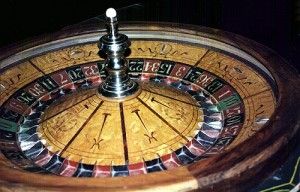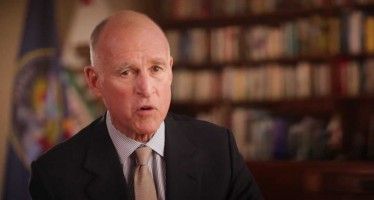From Golden State to Gambling State
The tiny Manzanita Band of Mission Indians proposes to build a ginormous “casino facility” on a 61-acre parcel of land.
The tribe’s tricked-out casino will boast 2,000 slot machines and 45 gaming tables. It also will have a 200-room hotel, a banquet/meeting hall, three guest restaurants, a swimming pool and a 6,000-space parking structure.
There’s just one small problem: The Manzanitas’ reservation is in southeastern San Diego County, near the town of Boulevard. They propose to build their gambling hall 50 miles east of their reservation, in the Imperial County town of Calexico.
There’s would be the first off-reservation casino in Southern California.
Imperial County officials recently approved the proposed Manzanita casino, desperate for the $112 million a year in commerce and 2,400 full-time jobs the tribe promises.
They expect to receive long-awaited approval this year from the U.S. Bureau of Indian Affairs. Then it will be left to Gov. Jerry Brown for his consideration.
I have previously supported Indian gaming.
Partly in recognition of the way Native Americans have been treated in this nation and this state. And partly because I thought it a preferable, albeit imperfect, alternative to tribal reliance on government welfare.
But I draw the line at off-reservation gaming — like 72 percent of Californians, according to the Sacramento polling firm J. Moore Methods.
If tribes are free to build casinos anywhere and everywhere they choose, it will accelerate the proliferation of gaming throughout the state. California will transmogrify from the Golden State into the Gambling State.
As it is, California already is one the nation’s biggest gambling states. We’ve got nearly 60 tribal casinos. We’ve got more than 90 non-tribal card clubs. We’ve got horse racing. We’ve got off-track satellite wagering. And, of course, we’ve got the California Lottery.
Cash Cow
Time was when the gambling industry had “dis-favored” status in the eyes of the state government (kind of like the tobacco industry today). That was because of the problems that go along with gambling, not the least of which is heightened criminal activity.
But then the state government itself developed an addiction to gambling. So, while state officials may consider it less than desirable that hundreds of thousands of residents are regularly depositing their hard-earned money at blackjack tables, betting the ponies or buying SuperLotto tickets, they can’t get enough of the tax revenue the state’s more than $13 billion-a-year gambling industry generates.
Yes, the lottery helps to pay for schools. And tribal casinos — such as the off-reservation facility the Manzanita Band proposes — create jobs and stimulate local economies.
But as Aldous Huxley, author of “Brave New World,” famously stated, “We know the pursuit of good ends does not justify the employment of bad means.”
– Joseph Perkins
Related Articles
Brown talks taxes at budget press conference
Reading Gov. Jerry Brown’s meaning on some issues, with or without a dictionary and history text, can be tricky. But
Good, bad and ugly initiatives
Jan. 5, 2010: Any reform that will actually help fix the ongoing California government’s fiscal mess (serious spending limits, pension
Cap and trade shifts from cutting smog to shifting wealth
March 17, 2013 By Wayne Lusvardi California is subtly shifting the spending goals of its cap-and-trade taxes from reducing air




